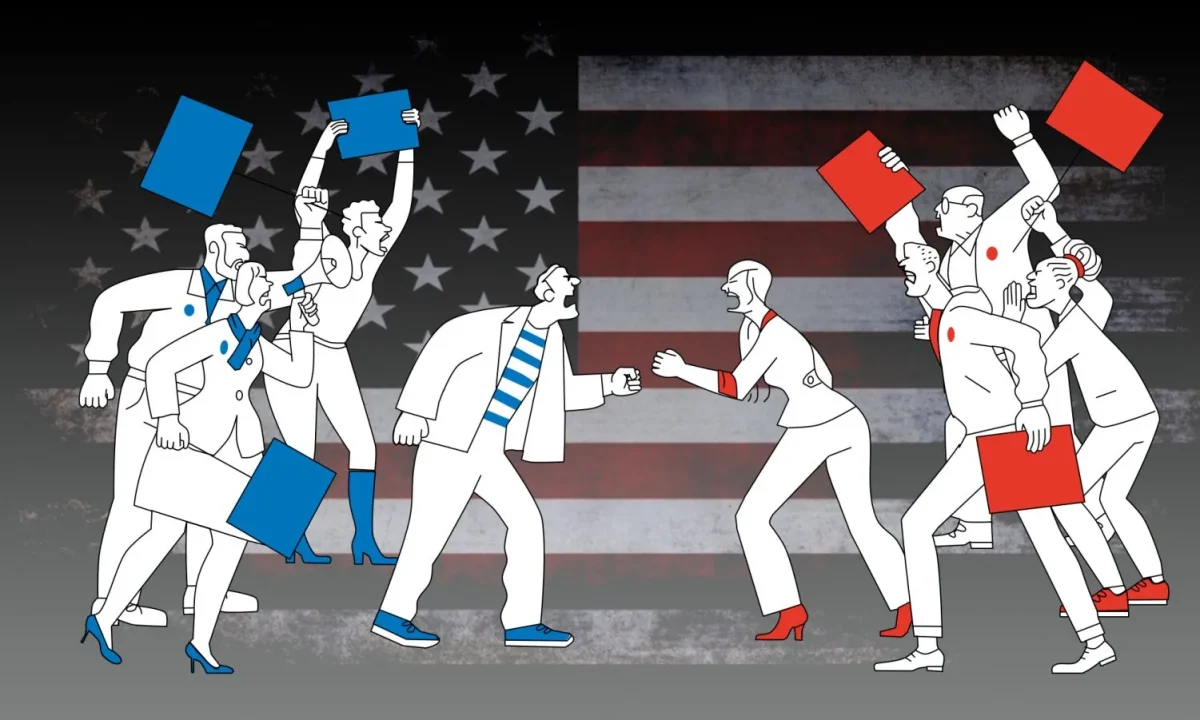Meet the Performative Man
Who is the performative man? The performative man is an archetype crafted to cater to the female gaze. He wears cargo jeans and Doc Martens. He strolls through farmers’ markets with an iced matcha in hand and a tote bag slung over his shoulder. He sits outside a café with a Jane Austen novel in hand, eyes scanning its pages hurriedly, darting up to glance around every once in a while. He wanders through thrift stores with wired headphones strung across his cable-knit cardigan, playing a Clairo track just well-known enough for him to hum along to its beat.
Looks like the ideal man, right? Well, look again.

Close enough to see that the sweater around his neck hides an Urban Outfitters’ tag, that his bookmark has been sitting in the prologue to Pride and Prejudice for the past six weeks, and he can’t name the Beabadoobee song he claims to have seen live. AND SCENE! There you have the perfect performative man, but who wrote this script to begin with?
When Did He Get Here?
Well, the performative man has always existed, just in varying flavors, tones, and textures. In the 1980’s you could see him sporting an outgrown mullet, wearing a Nirvana band tee, and displaying his Queen vinyls on his bedroom wall when…in reality, he only knows of Under Pressure from that Vanilla Ice lawsuit. Three years ago, he resurfaced once again as an “alpha male” dedicated to fitness, hustle culture, and Andrew Tate podcasts. This was criticized heavily for promoting casual misogyny, aggression, and emotional suppression. Ultimately, this approach failed as it only alienated women and exhibited toxic masculinity, so men turned to the opposite extreme.
In came a different image, one shot through an old digicam. It was a lighter and gentler, more feminine form of masculinity that said, “It’s not weak to be soft, it’s not effeminate to feel.” Instead of trying to impress or compete with others, men painted themselves as a safe, approachable haven for women. Men started rebranding themselves as an artsy, fashionable alternative, essentially, not like your stereotypical man. They instead pursued this image of being that man who reads feminine literature for the joy of it, who listens to music about the female experience, and attempts to empathize with long-standing sorrows.
So What…?
Now, I know what you’re thinking. Aren’t those characteristics great? Well, they are…when they’re real. The problem with performative males is not inherently in the hobbies they practice or the clothes they wear. What’s concerning is the insincere embodiment of what is someone else’s true nature. Full disclaimer: There are a handful of men out there who genuinely share the interests of a stereotypical performative man. It is these men who are catching strays due to the viral trend that their preferences have fallen victim to. Due to this insincere imitation, all men who display these traits are subject to scrutiny as women worry they do so with manipulative intent. While these men pretend to be sensitive for attention or approval, they fail to exhibit that emotional intelligence and vulnerability when they step out of the camera frame.
Behind the Facade
When they remove the mask, suddenly they no longer stand for what they’ve been promoting. Oftentimes, performative men will play at being a feminist, reading women’s literature, advocating for equal access to care, such as “free tampons in every bathroom.” But why must these claims be satirical? Authors such as Jane Austen and Sylvia Plath wrote novels to expose the social confinement that women faced daily. Their works are acts of resistance, critiquing the misogynistic hierarchy that victimized them and denied them opportunities simply because they were women. Their work was intended to dismantle the injustices tightly intertwined in a system built by men, only to be used as ornaments by the men of today.
These men don’t pick up feminist literature to view our patriarchal world from the perspective of a woman, but to flatter their image, turning these arguments into accessories. Turning literature into an aesthetic innately erases the urgency of its message and dilutes its impact. When these books are used as props, they create a double standard, since men may use them to appear enlightened while women who relate to their message may be dismissed as “radical” by the remark that “it’s never that deep.”

This phenomenon is not limited to literature. Men will engage with soft indie music such as Clairo, Beabadoobee, and Lana Del Rey, but fail to comprehend the depth of their lyrics. These artists’ music is tailored towards a female audience as its themes resonate with the female experience, including queer longing, emotional baggage, and the fear of being desired but not understood. Men will sing along to these lyrics and remain oblivious to the fact that they may be the cause of these grievances. They’ll romanticize sadness but not try to understand its cause or empathize with real women who experience the same feeling.
Walk the Talk!
These are the same men who will scream at the top of their lungs about equal standards and rights for women. They’ll “advocate” for access to period products for all women, vouch for men going to therapy, but won’t take any tangible action to support these causes. These are powerful stances that, if acted on through real advocacy, could bring forth change for so many who truly need it. Instead, many use these causes as a social leverage to make themselves seem more empathetic and caring, but don’t bother donating necessities to women in need, attending therapy themselves, or listening to the women in their own lives.
But imagine how impactful the same movement could be if it were genuine and supported through acts of advocacy. If these same men read past the prologue of Pride and Prejudice, made an effort to empathize with the lyrics to “Sofia”, and took substantial action to improve the lives of women in need. Imagine if this movement were not-so-performative.














Maria Vaca • Sep 6, 2025 at 12:04 am
Banger!
Natalie Ortiz • Sep 6, 2025 at 1:59 pm
certified